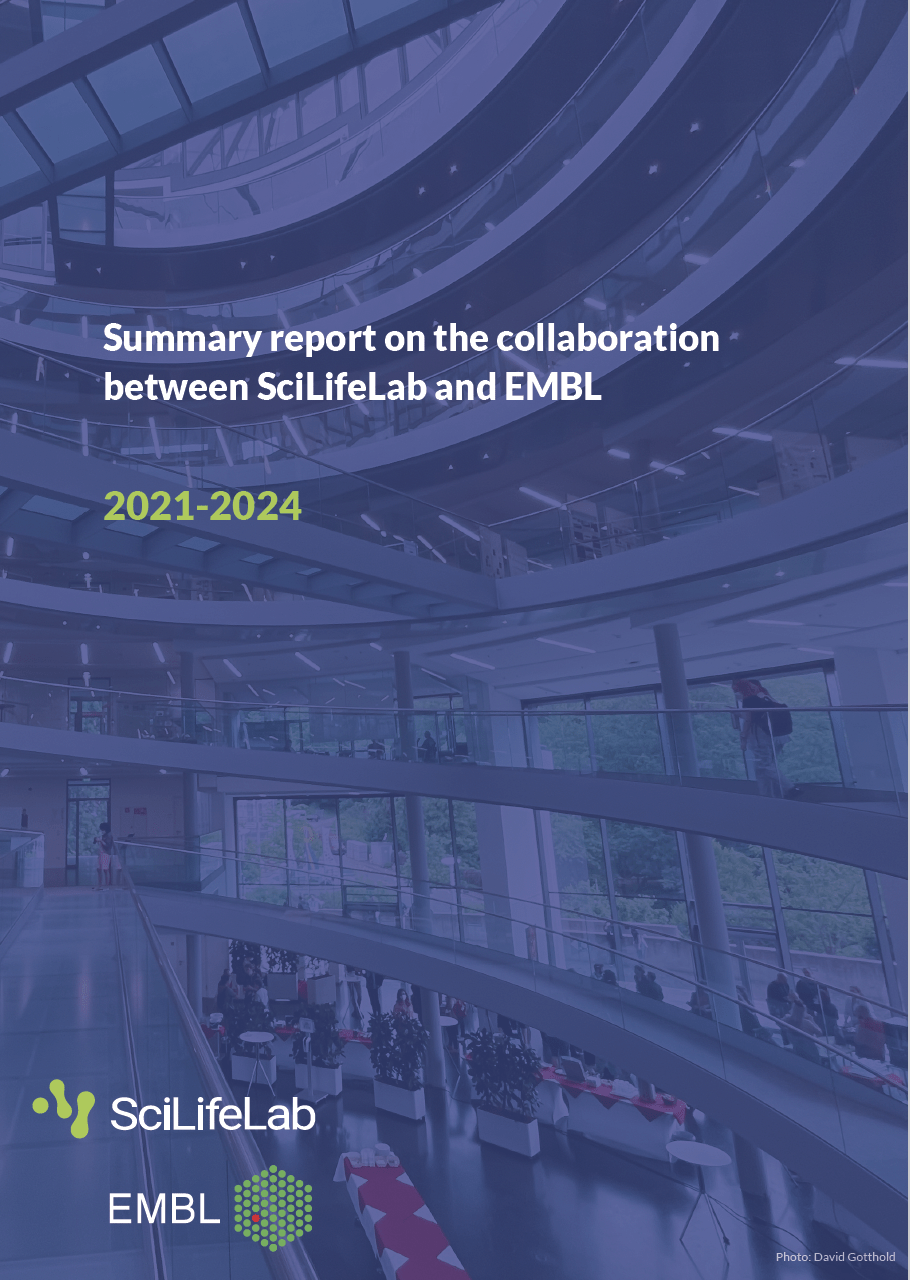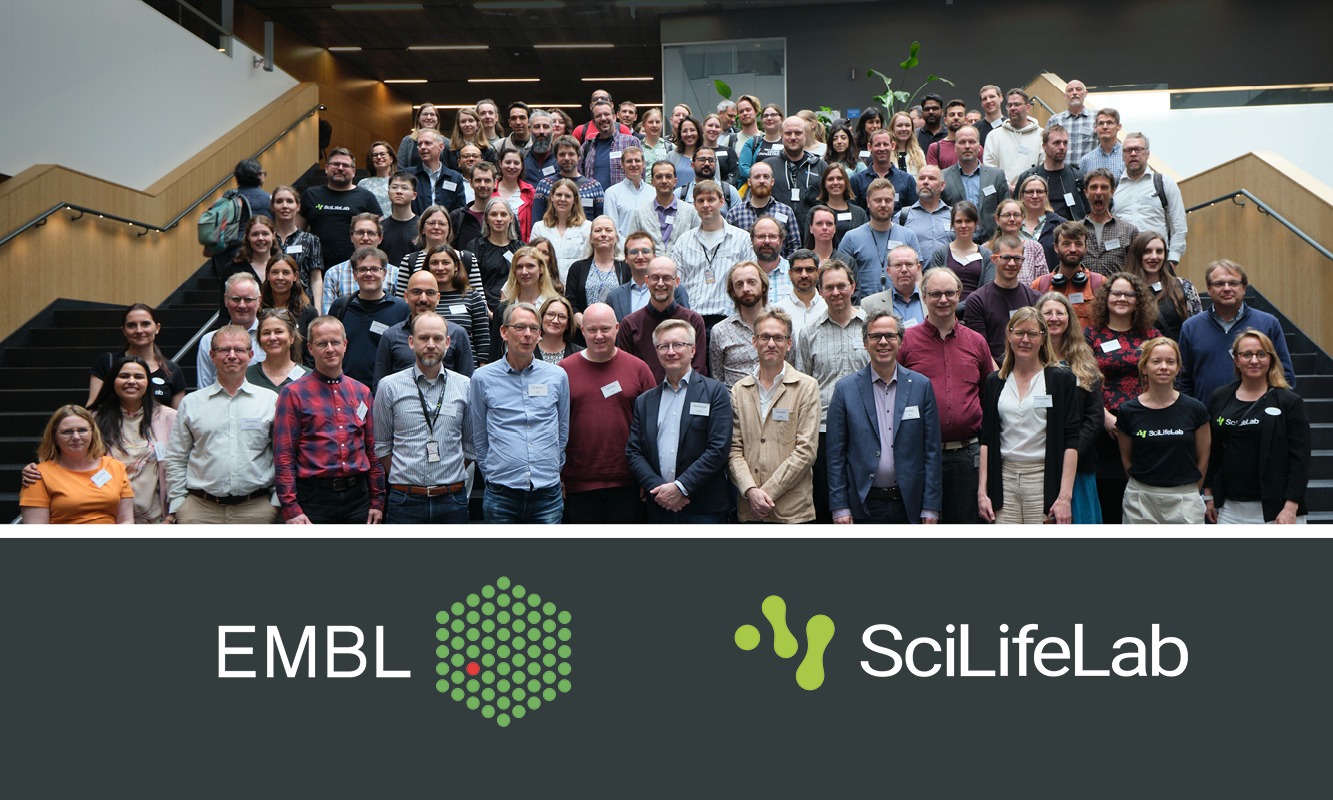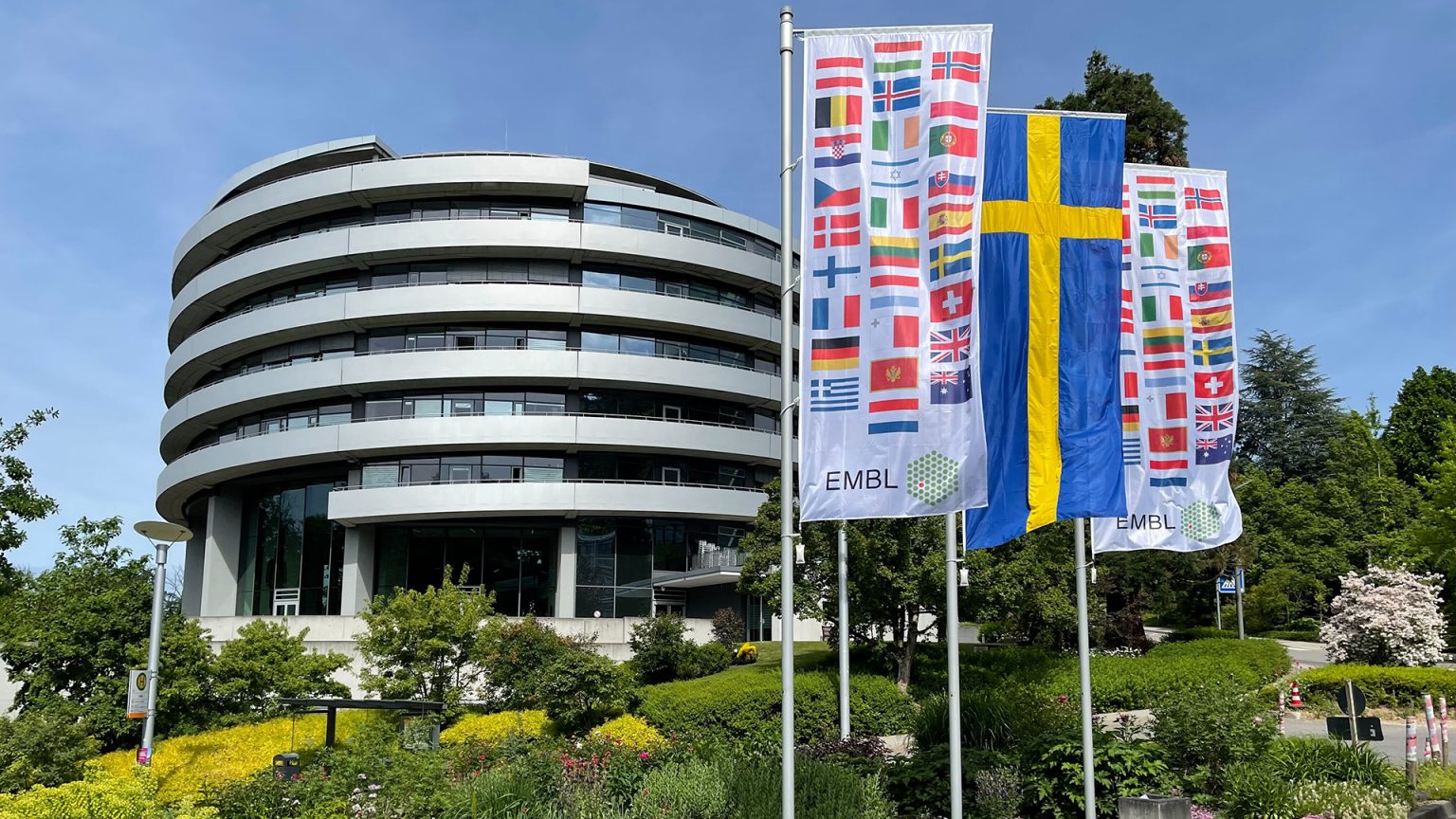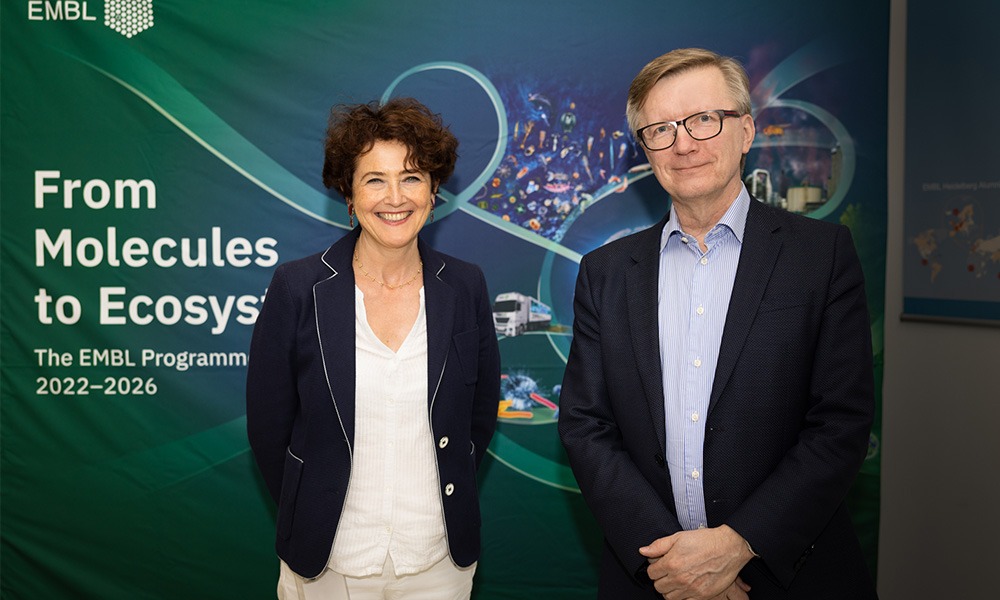
SciLifeLab and EMBL in collaboration
SciLifeLab and the European Molecular Biology Laboratory (EMBL), one of the world’s leading research institutions, and Europe’s flagship laboratory for life sciences, have intensified collaboration between the two organizations under a joint Memorandum of Understanding (MoU). EMBL and SciLifeLab share the same overarching goals to advance science for the benefit of healthcare, biodiversity, the environment and many other fields.
As some of the most pressing challenges biological research is facing today are global, effective solutions to improve planetary and human health require scientists working together across countries and disciplines. The MoU declares a joint ambition to stimulate mutually beneficial scientific and academic exchange and collaboration in various areas of life science research in order to ensure greater connectivity, availability of scientific data, use of shared key technologies and circulation of talent.
SciLifeLab supports exchange visits to EMBL.

SciLifeLab provides financial support for exchange visits between SciLifeLab and an EMBL site (facility or research group).
The deadline for 2024 applications was March 1st. More information about the exchange will be provided after visits have taken place.
SciLifeLab partner in EMBL ARISE program
ARISE Career Accelerator for Research Infrastructure Scientists hire researchers and engineers to advance technology and methods in life sciences and learn how to lead service providing research infrastructures.
Through ARISE, EMBL works with a number of academic and non-academic organisation, who participate in training and supervision of the fellows. These organisations are potential future employers of the ARISE fellows as well as partners on the technology development projects that the fellows are working on.
Now SciLifeLab is an official collaboration partner organisation and possible receiver of fellows during different secondments. Interested ARISE fellows are encouraged to explore the SciLifeLab infrastructure and discuss projects with the Head of the Units.
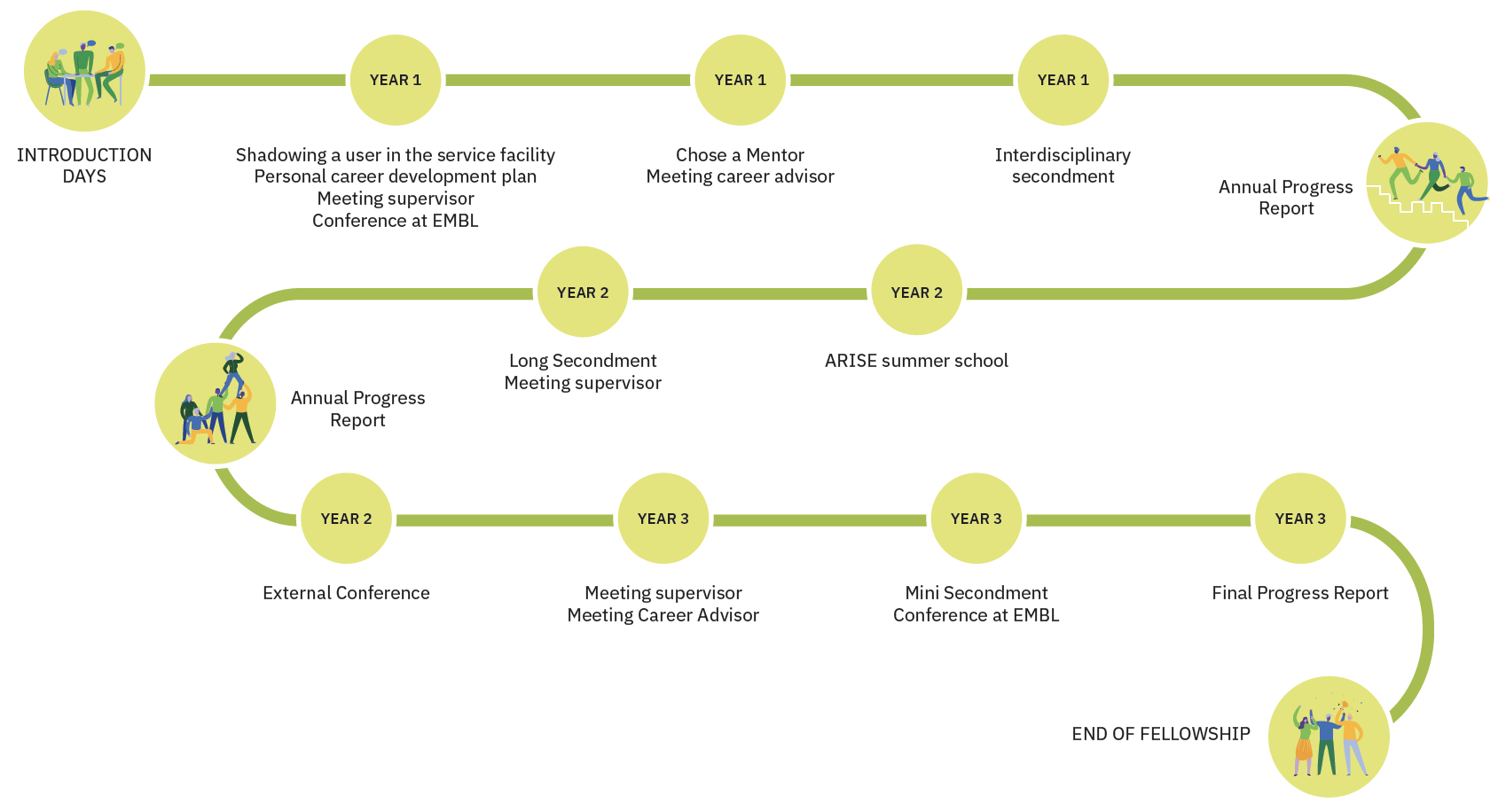
Joint SciLifeLab-EMBL Data Science workshop
May 15/16 2023 in Uppsala Sweden.
Event page: https://www.scilifelab.se/event/embl-scilifelab-data-science-workshop/
Five work streams/areas for bilateral groupings (SciLifeLab-EMBL) have been defined:
1. Internal & external training & support, training scientist at all levels, training biologists
2. Integrated data management (life cycle of biological data) & Scientific workflow sharing (‘to prevent need of re-invention’)
3. AI (how to further foster)
4. Provision of public data services – computational tools
5. Technical infrastructure – computational solutions
6. Biological theme: Imaging
7. Biological theme: Human data
EMBL is offering a wide array of courses and workshops
Browse the offer for 2024 following the button below.
Joint EMBL-SciLifeLab workshop on the theme of Planetary Biology, Heidelberg May 16-17, 2022.
The workshop included talks on a broad set of themes including:
*Biodiversity genomics and reference genome sequencing
*Ecology and evolution
*Biogeochemistry & ecosystems
*Data driven planetary biology
Scientific committee SciLifeLab: Stefan Bertilsson (SLU) and Olga Vinnere Pettersson (Uppsala University), also appointed Scientific leads for the SciLifeLab Planetary Biology capability.
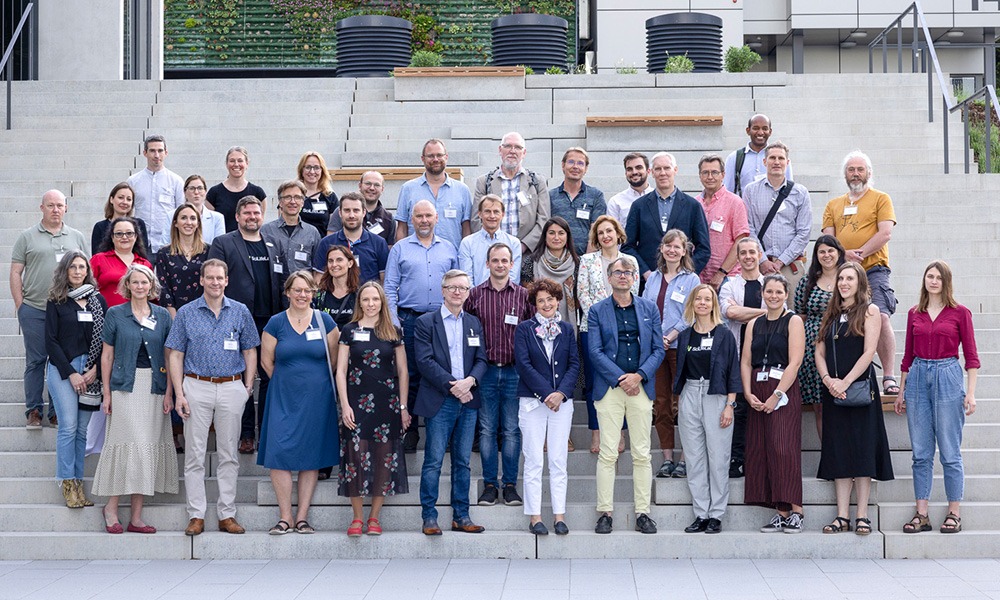
Read about
the EMBL Planetary Biology transversal theme. Unravelling genetic and environmental influences in biomes and ecosystems to understand biological processes and improve planetary health.
EMBL’s newly deployed Advanced Mobile Laboratory (AML) is bringing cutting-edge technologies to the European coast
Diving into Discovery: AMRI’s Unforgettable Journey with TREC’s Coastal Expedition
Webinar to highlight launch of collaboration
Watch the webinar from May 31, 2021, that highlight the launch of the intensified collaboration between the organisations under the joint Memorandum of Understanding (MoU).
The MoU declares a joint ambition to stimulate mutually beneficial scientific and academic exchange and collaboration in various areas of life science research in order to ensure greater connectivity, availability of scientific data, use of shared key technologies and circulation of talent. Specific topics of research interest have been identified based on already existing ties and may be jointly developed in the future.
